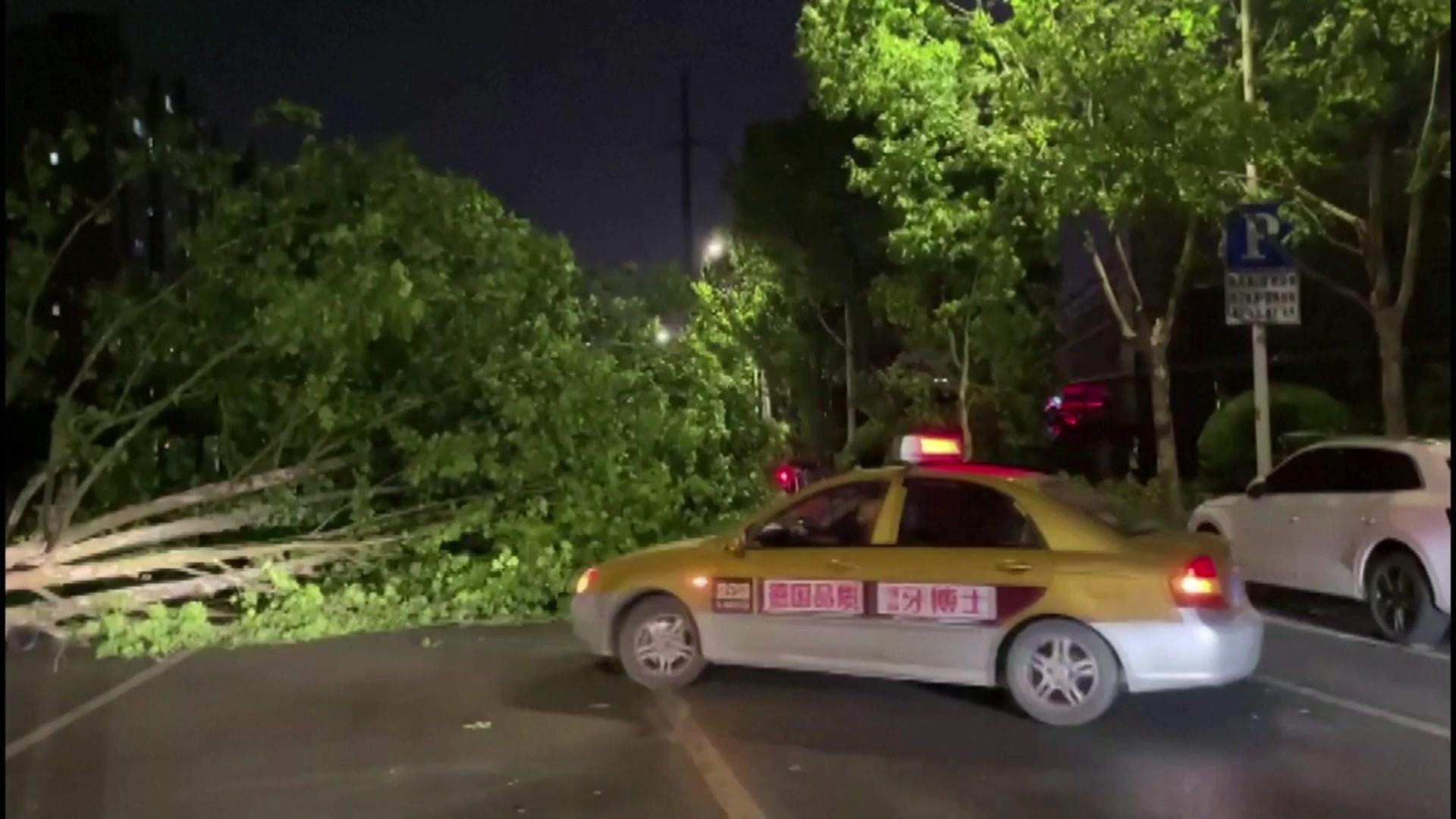China marathon: Fans mourn top runners killed in deadly race
- Published
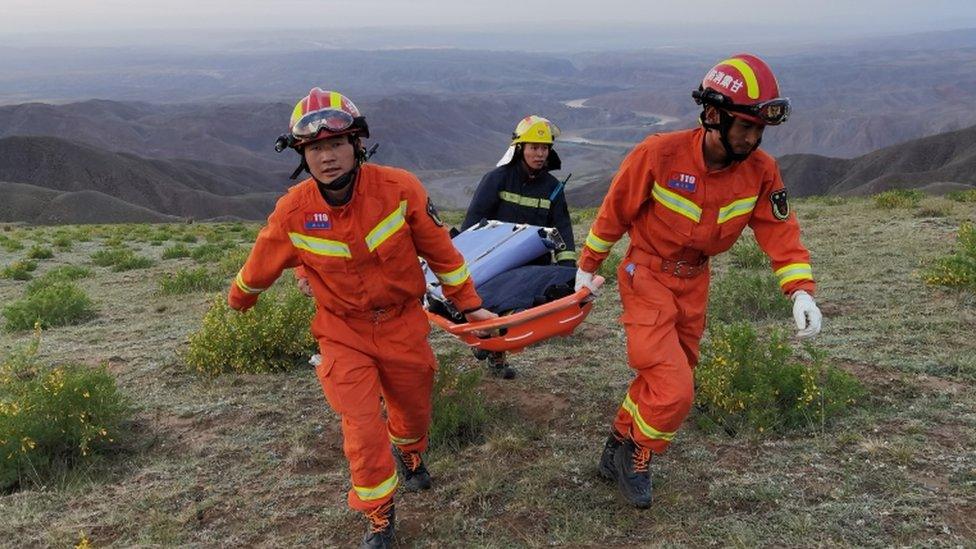
A rescue operation was launched to save stranded runners, but not everyone survived
Tributes have poured in online for two of China's top runners who died after extreme weather hit their long-distance race in Gansu province on Saturday.
Liang Jing, an ultramarathon champion, and Huang Guanjun, a hearing-impaired marathoner, were among 21 people who died in the 100km (60-mile) race.
"We've lost masters of the sport. This is an earthquake for the domestic running circle," a Weibo user wrote.
The runners got into trouble after the race was hit by freezing temperatures.
Surviving participants said the forecast had indicated there would be some wind and rain, but nothing as extreme as what they experienced.
The mountainous race was halted when some of the 172 runners went missing, and a massive rescue operation was launched.
The regional government has been heavily criticised for the lack of contingency planning, and officials have apologised.
Who were Liang Jing and Huang Guanjun?
Liang Jing was one of China's most accomplished ultramarathoners, and was fondly nicknamed "Liang God" and "General Liang" for his skills.
The 31-year-old has won numerous long-distance races in the country, including the Ultra Gobi in 2018 - a 400km race through the Gobi desert.
According to pictures taken of him near the start of Saturday's race, which were widely circulated in Chinese media, he had worn only shorts, a thin jacket and a baseball cap.
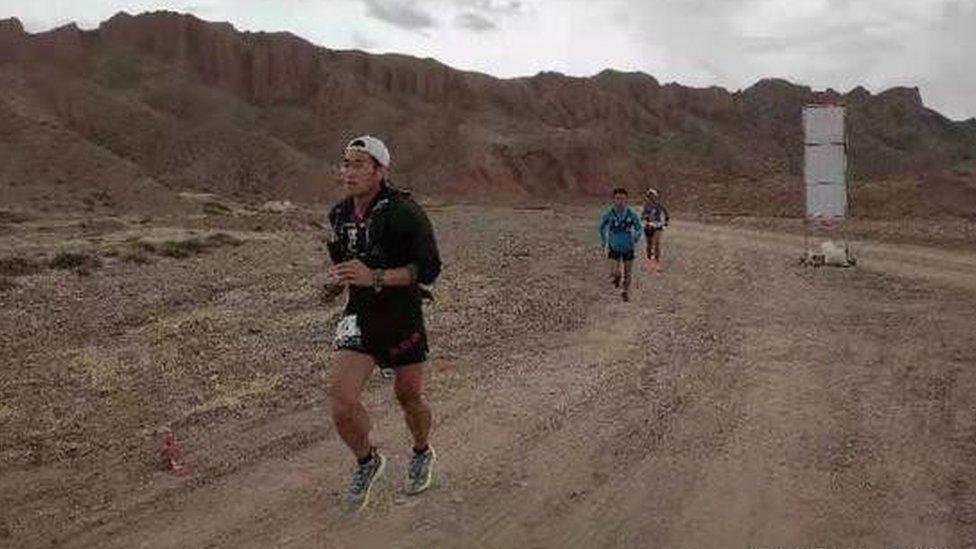
Liang Jing (wearing black) had worn only shorts and a thin jacket at Saturday's race
By the time he was found by rescuers, he had already shown no vital signs, local reports said.
On Chinese social media, fans mourned his death, describing it as a "huge loss" for the country.
"Without General Liang to lead the way, who will other ultramarathoners look to now?", one person commented.
Another victim, Huang Guanjun, 34, was known for winning the men's hearing-impaired marathon at China's 2019 National Paralympic Games.
Profiles carried by local media said the Sichuan native became hearing-impaired at the age of one after an "injection error", and was also unable to speak.
He did not excel in his studies, and struggled to hold down a permanent job. He often faced difficulties with his finances, sometimes surviving only on instant noodles for meals.
But the one thing he was good at was running - so he joined races over the years in the hopes of winning some prize money, his friends were quoted as saying.
Saturday's race had offered runners 1,600 yuan (US$248, £176) each if they completed the event.
The Cover news site reported that after learning of his death, a friend of Huang's cried at the thought of how the runner may have had suffered in his final moments.
"He is deaf and cannot speak, he could not even call for help," the unnamed friend said.
What exactly happened at the race?
More accounts have since emerged about the race, which began at 09:00 local time (01:00 GMT) on Saturday.
About three hours after the start, a mountainous section of the race was hit by hail, heavy rain and gales, which caused temperatures to plummet, according to officials from the nearby Baiyin city.
Many of the stranded runners reportedly suffered from hypothermia, and had lost their way on the route as the weather affected visibility.
An unnamed runner, quoted by The Cover, described the freezing rain pelting down like "bullets hitting the face".
There was one section of the mountain that was particularly steep, he said, and the exposed land meant that there was nowhere he could have taken shelter.
"The rain really hurt, and the winds were so strong that you could only squint," he said.
He added that even if one had brought a thermal blanket, it would have been torn apart by the gale force winds.
A rescue operation deploying more than 1,200 rescuers was launched, assisted by thermal-imaging drones and radar detectors, state media said. But the rescue efforts proved too late for some.
The incident has sparked public outrage on Chinese social media, with anger mainly directed at the Baiyin government and unhappiness over the lack of contingency planning.
In a news conference on Sunday, Baiyin's Mayor Zhang Xuchen said: "As the organiser of the event, we are full of guilt and remorse. We express deep condolences and sympathy to the families of the victims and the injured."
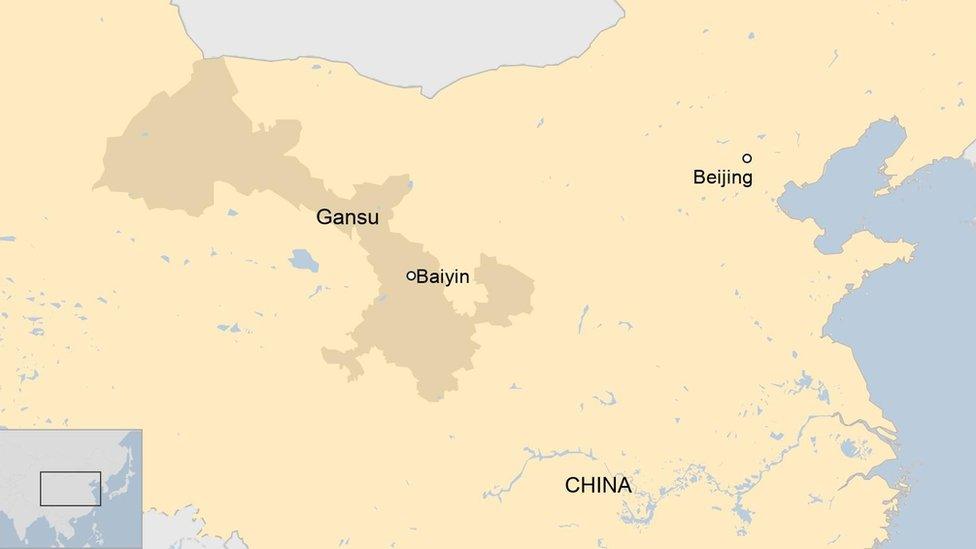
Related topics
- Published23 May 2021
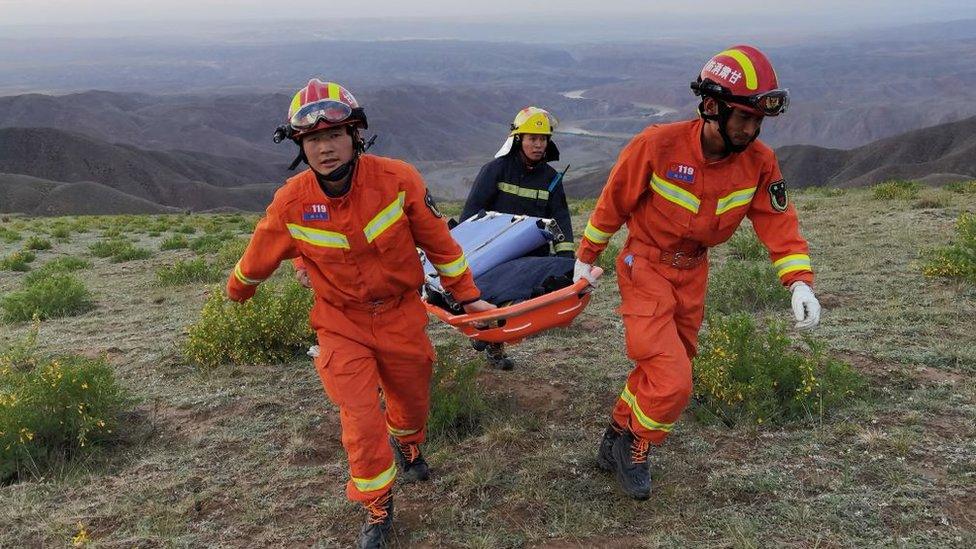
- Published1 May 2021
